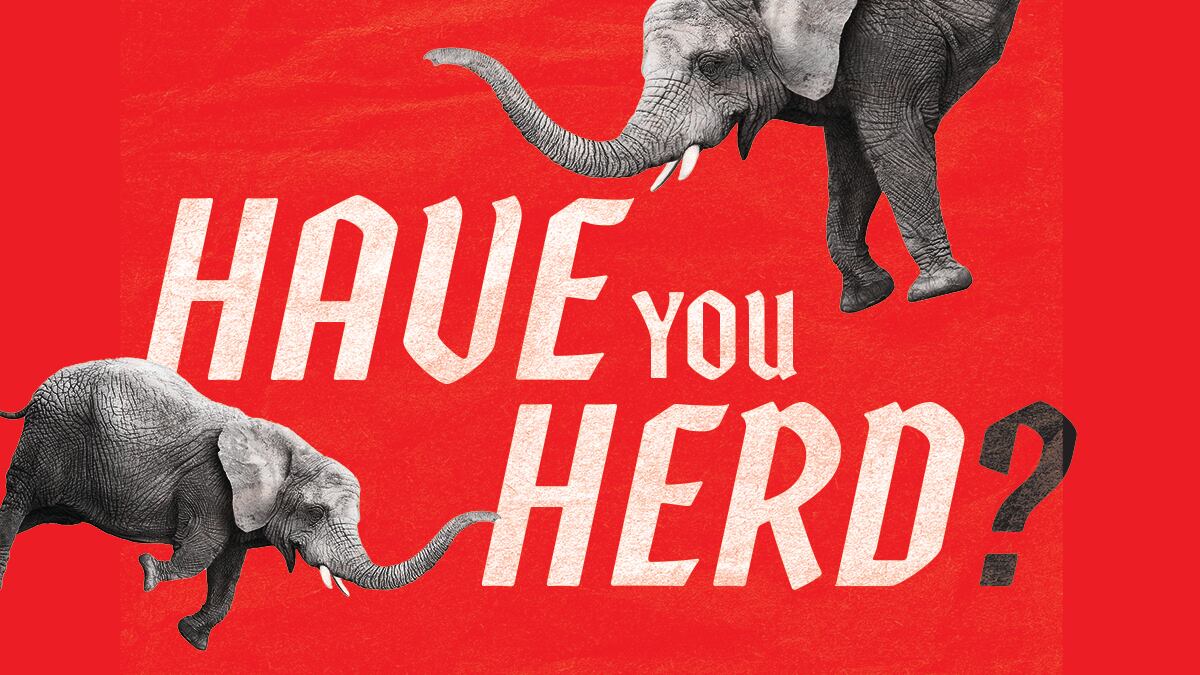One Thursday evening in February, hundreds of maskless Republicans packed into The River Church, a nondenominational evangelical house of worship located in a Salem strip mall.
While all the leading GOP candidates for governor were there, pitching an alternative to four decades of Democratic rule in Oregon, it wasn’t your average candidate forum. Instead, it was billed as a prayer service “for governor candidates followed by question and answer time, so as to be informed how to pray for them in the future.”
Charismatic pastor Lew Wooten preached on his defiance of Gov. Kate Brown’s order to close churches at the height of the pandemic and his experience facing down antifa in Portland, which has made him something of an online sensation.
The party was in full revolt against the last days of pandemic restrictions—that much was obvious. Older men and women who had brought their masks to the church wore them below their chins once they saw all the uncovered faces.
Eleven candidates were there, from Bud Pierce, the Salem oncologist who lost to Gov. Brown in 2016, to Christine Drazan, the onetime House minority leader.
Virtually all of them told the audience they wanted to restrict abortion, get tough on crime, and trash Oregon’s vote-by-mail system.
A mild-mannered candidate in a red tie, Reed Christensen told the crowd: “The puppet Biden is a perfect example of the garbage you get when you order your president through the mail.” Rousing applause ensued.
Christensen is under federal indictment for allegedly assaulting a police officer while storming the U.S. Capitol on Jan. 6.
In multiple ways, the GOP is still nursing a massive hangover from the last election. A contingent of the party, led by the ex-president himself, won’t accept the results. And to get elected, Republicans may have to bite into that red meat of politics and appeal to their base.
If the party seems stuck in the past, it also has an unusual opportunity to do something it hasn’t managed to accomplish in 40 years: win the governor’s mansion.
A competitive, unpredictable GOP primary promises an especially meaningful prize: the chance to face a Democrat when most Oregonians think the state is headed in the wrong direction.
“If the right message can be delivered to the right people with enough frequency to hit home, then I think this could be a year for a Republican governor, even in a very blue state like Oregon,” says former state Rep. Jeff Kropf (R-Sweet Home), onetime state director of Americans for Prosperity, a Koch brothers group.
WW spoke to party insiders and outside observers, who agree that a perfect storm of conditions makes Republicans surprisingly relevant in deep blue Oregon.
“Everywhere you turn, there’s a bad issue for Democrats right now,” says Lars Larson, the KXL talk radio host. “It’s a very tough choice to make. We have a wealth of talent on the Republican side.”
This year is their best shot, perhaps in four decades, to win the state’s highest office.

There are three reasons why:
1. Oregon Republicans nearly always win at least 40% of the vote in statewide races.
Despite Oregon’s status as a solidly blue state, governor contests here are always reliably close. In the past three governor’s races, the Republican nominee received at least 43% of the vote.
In 2014, Dennis Richardson won 44.1%. In 2016, Bud Pierce won 43.5%. Knute Buehler? In 2018, he captured 43.7%. Sure, Buehler spent more than $19 million for little better than 4 out of 10 votes. But Richardson spent less than $2 million and got a better result.
Those numbers suggest a hard floor of 40%. In Attorney General Ellen Rosenblum’s last race, in 2020, her Republican opponent spent less than $12,000 and still won more than 40% of the vote.
Since 2002, in the governor’s race, “the average margin of victories has only been 5 percentage points,” says pollster John Horvick of DHM Research. “There is a possibility for a Republican to win.”
2. Virginia could be a harbinger of this election cycle.
A Republican win in the governor’s race last November in Virginia—a state Biden won by 10 points—doesn’t necessarily translate to a win for Republicans in Oregon, where Biden won by 16. But it is a warning to Democrats and a clarion call to Republicans. Drazan entered the race not long after.
All politics are national now. Two years into a new administration, Democrats control the White House and the U.S. House and Senate. That means any problems in the country accrue to the Democrats.
Say, 7% inflation and a lingering pandemic.
In 2010, the last time a first-term Democratic president was proving a disappointment, Republican Chris Dudley lost to John Kitzhaber by 22,000 votes. Obama’s approval rating was at 50% at the same point in his first term, while Biden began the year with 40% approval, according to national polls by Gallup.
“I’ve never seen anything quite like this at the most basic grassroots level,” says Kropf. “We’ve got national politics. We’ve got geopolitical issues going on: war. And we’ve got a very unpopular governor in this state. I mean, you start adding all this stuff up, not to mention inflation—yeah, people are looking for alternatives here.”
To top it off, Gov. Kate Brown has the dubious honor of being the least popular governor in the country, at least as of November.
3. Oregon’s race for governor has a well-funded, centrist, third-party candidate.
Betsy Johnson, the former state senator and Democrat turned independent, is changing the math of the race. Her entry means Republicans could win with 40% of the vote.
“Republicans have the best chance they’ve had in 12 years,” says Jim Moore, a Pacific University professor who is working on a biography of Oregon’s last Republican governor. “And the reason is, because Betsy Johnson is in the race.”
The most famous third-party candidate in the past three decades, presidential candidate Ross Perot, helped propel Bill Clinton to the White House. Johnson, too, could entice Republican votes. She has Republican donors and is taking Republican positions on many issues.
“There is no viable path—mathematically, philosophically, politically—[for a Republican] between here and November,” says Dan Lavey, a former Republican consultant working for Johnson.
But she could also hurt Democrats. Some Republicans see her as a pro-choice onetime Democrat who voted for some of the biggest tax hikes in state history.
“Our internal polling shows that Betsy Johnson, as a lifetime, insider Democrat, takes twice as many votes from the Democrat candidate than the Republican,” says David Kilada, Sandy Mayor Stan Pulliam’s campaign consultant.
And yet: There is the Trump problem.
The publicity-seeking ex-president not only endorses candidates but revels in the limelight, and disaffected Democrats and even the unaffiliated recoil at the orange-haired menace. Whether he controls who wins the GOP primary in Oregon by extending his endorsement is key to how the race unfolds.
As of November, more than 60% of likely Oregon Republican voters wanted to see a candidate for governor more like Trump than less. He still repulses unaffiliated voters.
It’s a common problem politicians face: winning the party faithful in the primary and the party ambivalent in the general. But the problem is notched up to an extraordinary degree by Donald Trump never conceding the last election and his demand of hard-and-fast loyalty.
“You have to have this craven allegiance to Cult Trump,” says Elaine Franklin, the longtime Republican political consultant. “These Republicans motivated to vote in the primary, when did they become part of a cult? It defies logic and reason to think that Biden stole the election in Oregon.”
Consider the example of Jessica Gomez, a Latina gubernatorial candidate from Medford with the sort of homeless-to-entrepreneur bootstraps narrative that might have crossover appeal. At a Feb. 26 forum in Springfield, she urged the audience to consider that a fellow Republican had indeed gone looking for fraud in Oregon elections and found none.
“So our last [GOP] statewide elected official, Dennis Richardson, did an audit on our election systems and was pretty comprehensive. And at the end of the day, he didn’t find any evidence of fraud.”
She received a politely quiet response—the same sort of reception given to Brandon Merritt, a political newcomer who asks Republican forums to cheer him on with “Let’s go, Brandon!” (WW apparently likes dad jokes better than Republican diehards.)
To be sure, a sliver of daylight has opened up between Republicans and Trump: An NBC poll in January found that 56% of Republicans support their party more than they do the former president, while 36% chose Trump over party—a reversal from just months prior.
What happens in November may boil down to the simple calculus of which is more repellent to voters in the Willamette Valley suburbs: Trump or the hellscape of rising inflation, gun murders, and the ongoing pandemic?
After the Oregon Supreme Court evicted New York Times reporter Nick Kristof from the ballot, the Democratic primary became a rather sleepy affair between two leading contenders.
But 19 Republicans are slugging it out in a primary race in which there is still no overwhelming favorite, and the victor won’t have to receive a majority of the vote.
Here are five who have the cash or name recognition to separate themselves from the rest of the pack—and how much they are willing to embrace the Big Lie.

Stan Pulliam
Age: 40
Occupation: Mayor of Sandy, insurance executive
Money raised: $1 million, but only $286,000 on hand
Signature moment: Whenever Gov. Kate Brown restricted schools and businesses during the pandemic, Pulliam provided the GOP response with a press conference demanding they be allowed to reopen.
Chances to win the primary: Pulliam’s opposition to COVID shutdowns and his loyalty to Trump once made him the candidate to beat in the primary. But last month, Pulliam told WW that he and his wife were briefly part of a Portland swingers’ club. In a GOP primary, traditional sexual mores still matter. Last week, he was not among four Republican gubernatorial candidates to get an endorsement by the Oregon Right to Life political action committee—even though he opposes abortion.
What he says about the Big Lie: Right after the Jan. 6 insurrection, Pulliam faulted Trump for the violence that ensued—a statement he has since tried to walk back. At The River Church, he told the audience: “Willamette Week reached out to all the leading Republican candidates, and I was the only one who stood up and said the last election was fraudulent.”
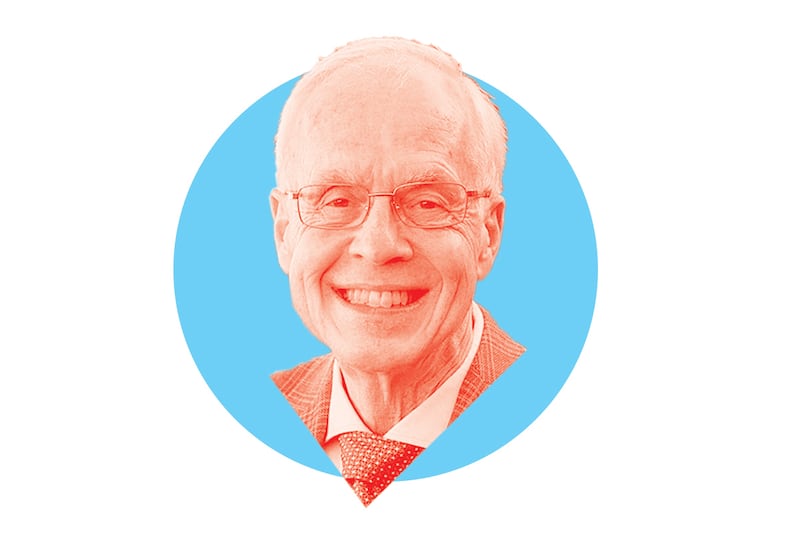
Bud Pierce
Age: 65
Occupation: Oncologist
Signature moment: Won the Republican nomination for governor in 2016.
Money raised: $1 million, but he can self-fund.
Chances to win the primary: Pierce has arguably the best name recognition among Republicans, thanks to his 2016 campaign, which won him 43% of the vote. He is beloved in Marion County, where he’s tended to cancer patients for decades—and he’s liked by Republicans who watched him carry the party banner at times when momentum was against them.
A recent tragedy engenders even more sympathy. On the campaign trail, he brings up the untimely death of his beloved wife, Selma, who was killed by a car as she walked near their home in 2020; at a forum, he cited prayer as helping him through.
But with a personality as dry as cabernet, he seems unlikely to excite the party.
“I like Dr. Pierce a lot,” says Larson. “As much as I like him, I think you’ve got to have a real fire in your belly.”
What he says about the Big Lie: In 2016, Pierce pivoted from endorsing Trump in the primary to un-endorsing him in the general—a gambit that does not make him a leading contender for the ex-president’s endorsement. He concedes Biden won the election.
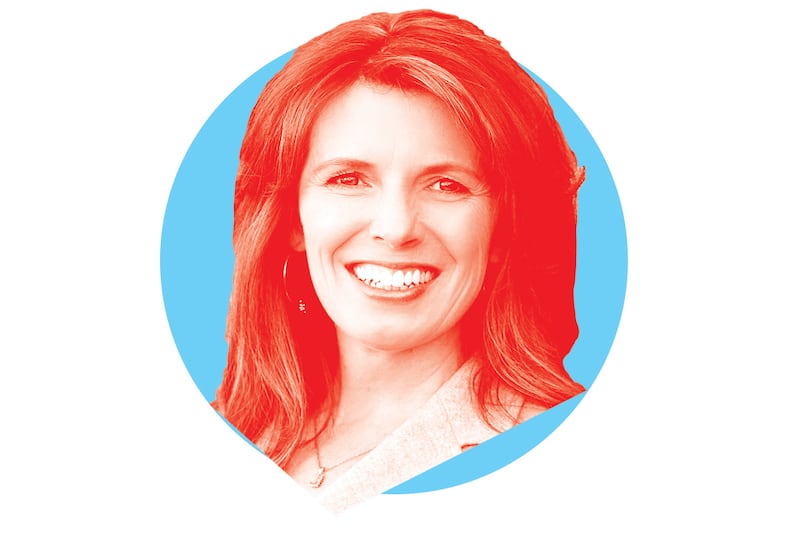
Christine Drazan
Age: 49
Occupation: Former House minority leader
Signature moment: Led a walkout to shut down the Oregon Legislature, derailing the Democrats’ climate change package in 2020.
Money raised: $1.4 million, with more than $1 million on hand
Chances to win the primary: As the leader of House Republicans for two years, Drazan is a professional who’s still a staunch conservative on issues like abortion. And many speculate that if she wins the primary, she is most likely to receive significant cash from the Republican Governors Association.
But some conservatives fault her for failing to block more Democratic bills by walking out.
And she may not be able to excite the MAGA-hatted GOP base in May or November. The base may prefer an angry, ass-kicking outsider in the mold of Trump.
One hint she can persuade them: Sen. Dallas Heard (R-Roseburg), the hard-right chair of the party who recently resigned after accusing his internal party opponents of “communist psychological warfare,” prefers Drazan over other leading candidates.
“I’m a small-town girl from Klamath Falls,” she says on the campaign stump. “Kate Brown and Tina Kotek have harmed Oregon. They have hurt our beautiful state.”
What she says about the Big Lie: She was never a Trump diehard and opposed her party’s resolution to call Jan. 6 a “false flag” operation. “The election is over. It is time to govern,” her statement read.
But she attacks Democrats when asked about election security—pointing to a bill that would have given inmates the right to vote in prison. “It is just stunning to me the extent to which they will go to rig the system,” she says on the campaign trail.
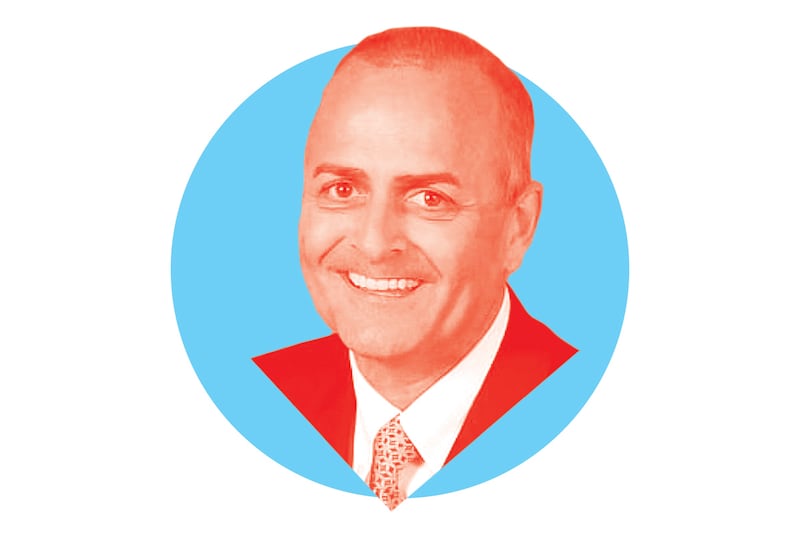
Bob Tiernan
Age: 66
Occupation: Former legislator and chair of the state GOP, business consultant
Money raised: $1 million, half of it a loan from himself
Signature moment: Co-petitioned Measure 11, an initiative passed in 1994 that set mandatory minimum sentences for certain violent crimes.
Chances to win the primary: Tiernan has been out of the Legislature for two decades, and it’s been more than 10 years since he chaired the Oregon Republican Party. His name recognition is nil. “It’s hard when you jump back in and you’ve been out a long time,” says former House Speaker and Secretary of State Bev Clarno, who overlapped with him in the Legislature and endorsed Jessica Gomez in the primary.
Then again, his style is Trump-like—he was a pugnacious lawmaker whose nickname was “B-1 Bob,” after the supersonic heavy bomber, and he once told two veteran GOP lawmakers to resign from the party after they supported a tax hike. (They ignored him.)
Tiernan entered the race just last month and can self-fund his campaign (he was once marred to the daughter of the founder of PayLess Drug Stores).
What he says about the Big Lie: “I think Trump lost the election, for many reasons,” Tiernan told WW on Feb. 17, after announcing his run. “Part of that could have been voter fraud; part of that could have been bureaucratic bumbling; part of it could have been just what happens when you have over 3,000 counties trying to do a process.”
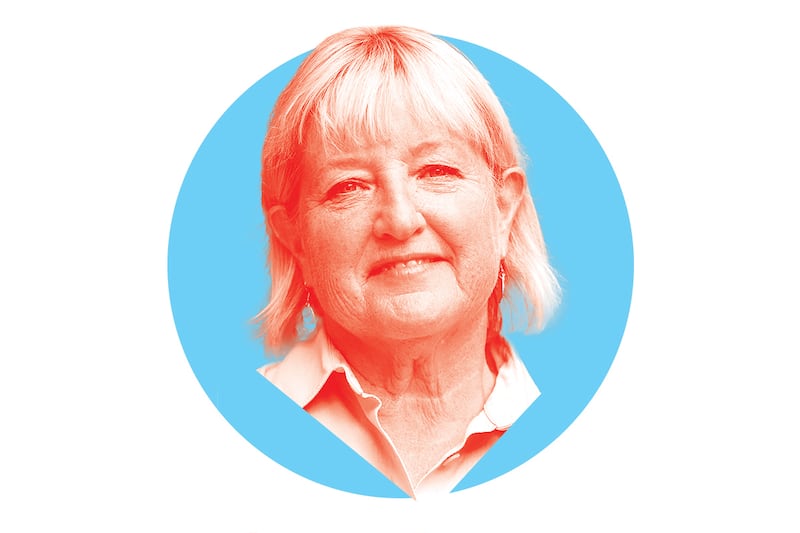
Bridget Barton
Age: 68
Occupation: Writer, publisher and consultant
Signature moment: Helped fund a campaign to defeat liberals in school board races in suburban districts, including Sherwood, where Oregon Health Authority director Patrick Allen lost his seat.
Money raised: $708,000
Chances to win the primary: Barton published Brainstorm NW magazine alongside Jim Pasero for years and was well known among a small but influential group of prominent conservatives writing about politics and policy. For more than a decade, she was the architect of the Oregon Transformation Project, which roiled Clackamas County politics, electing conservatives to leadership roles.
With no elective history, Barton focuses on her personal story: training horses, a triumph over alcoholism. On the campaign trail, she likes to describe her childhood in Williamsburg, Va., an early historic colonial capital, as a source of her patriotism.
But she is not without political experience. Most recently, she and former state Rep. Kevin Mannix filed a successful lawsuit in 2020 against COVID mandates.
What she says about the Big Lie: When asked whether Biden won, she refused to answer.
Two other GOP candidates could take a notable chunk of the electorate and factor into who wins the nomination:

Bill Sizemore
Age: 70
Occupation: Contractor
Signature moment: Authored and successfully campaigned for Measure 47, a limit on property tax hikes, in 1996.
Money raised: $500, from himself
Chances to win the primary: None, given that he’s the only Republican nominee to get less than 40% of the vote in an Oregon governor’s race since the Great Depression (he was slaughtered by John Kitzhaber in 1998, with 30% of the vote). Sizemore was a charismatic leader of tax revolts in the 1990s and still has a higher profile than Barton or Tiernan. But he’s been in the wilderness for two decades and filed for bankruptcy in 2013. A former carpet salesman and keen softball player, Sizemore dusted off his lawn signs after Pulliam admitted to swinging.
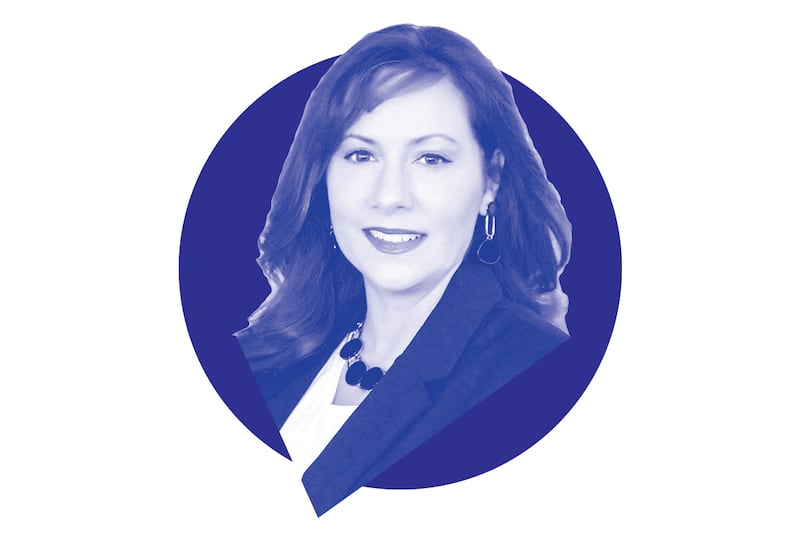
Kerry McQuisten
Age: 49
Money raised: $165,000
Occupation: Mayor of Baker City, businesswoman
Chances to win the primary: Like Pulliam, McQuisten is a small-town mayor who attracted national attention, in her case when she pushed for a city resolution that blamed the “economic, mental health and criminal activity crisis” on Gov. Kate Brown’s COVID-19 restrictions.
She is a naturally gifted speaker, but she lacks Pulliam’s connections to donors in the Willamette Valley, and there’s no indication she’ll have the funds for TV ads and campaign mailings. She does have the backing of a “Trump-endorsed expert on election integrity”—Dr. Kelli Ward, Arizona Republican chair, who is hosting a fundraiser for her later this month.
